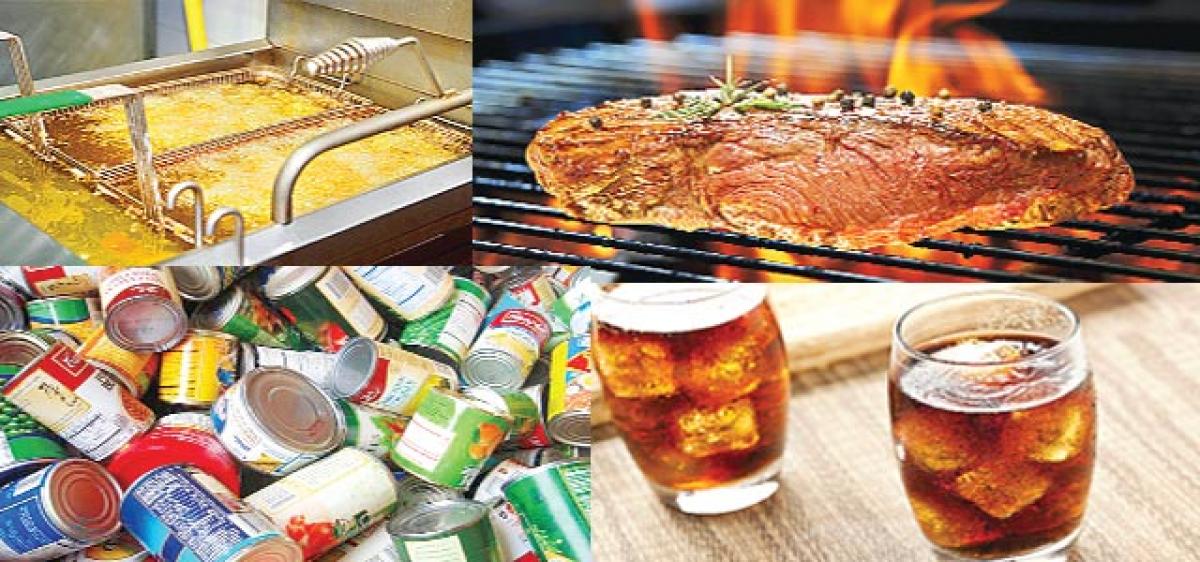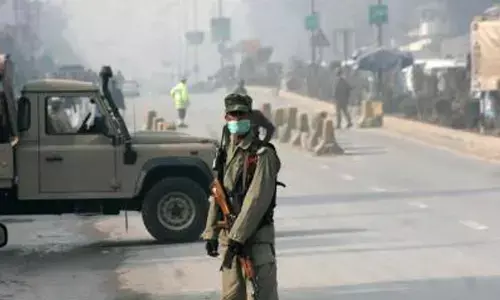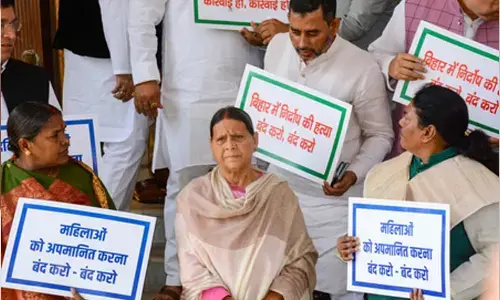Your diet may be the culprit

In India, about 2.5 million people currently suffer from some form of cancer and about seven lakh new cases are added everyday to this already high burden. The likelihood of developing cancer is defined by a set of risk factors, which are a combination of environmental and genetic components.
In India, about 2.5 million people currently suffer from some form of cancer and about seven lakh new cases are added everyday to this already high burden. The likelihood of developing cancer is defined by a set of risk factors, which are a combination of environmental and genetic components.
While genetic factors like your family history and age are beyond your control, you can take charge of the environmental factors and significantly reduce your risk. This applies particularly well to those belonging to a high-risk category having a family history of malignant disease, inflammatory disorders that may precipitate some forms of cancer or unhealthy lifestyle habits like smoking and excessive alcohol consumption.
The most important modifiable environmental risk factor for cancer is the consumption of a healthy diet. It is seen that following a cancer-protective diet can cut the risk of the disease by as much as 50%. Much has been said and done about foods that can confer protection against cancer, but it is equally important to be equipped with knowledge of dietary components that can exacerbate the risk of developing cancer or worsen an existing condition.
The top five most-diagnosed cancers in men are lung, prostate, colorectal, stomach, and liver and the top most-diagnosed cancers in women are breast, colorectal, lung, cervix, and stomach. Majority of these disorders are centered on the gastrointestinal system. Our general everyday diet not only affects the risk of development and survival of cancer but also major non-communicable lifestyle disorders like diabetes, hypertension and heart diseases. Following are some dietary components that are carcinogenic or cancer causing if consumed in large quantities over a prolonged period of time:
Transfats
Transfats are obtained post extensive chemical treatment of vegetable oils. They are known as a potent trigger for cancer, heart disease and autoimmune disorders. The unhealthy levels of omega-6 fatty acids found in hydrogenated oils like dalda make it highly carcinogenic owing to their unique ability to attack and damage cell membranes.
Soda and carbonated beverages
These beverages are inundated with a host of chemicals, high fructose corn syrup and unhealthy sugar levels and provide absolutely zero nutritional value. Moreover, their caloric content is extremely high which can lead to fatal spikes in insulin levels, a home ground for cancer cells, if consumed on a regular basis.
Refined sugar
It is being increasingly solidified in the medical community that refined sugar is one of the most potent dietary risk factor for cancer and several other non-communicable disorders. Refined sugar is chemically processed and can significantly alter blood glucose levels, which is correlated with an increased cancer risk. Artificial sweeteners like aspartame are equally harmful.
Canned products
Food cans are lined with bisphenol-A, phthalates and styrene that are recognised as potent endocrine disrupters, meaning, they can disrupt the hormonal balance in the body. A carefully regulated hormonal environment is crucial to ward off any malignant formation in the body and these chemicals interfere with this critical balance.
Charred or smoked food products
Charred meats and other food products are prepared through a grilling process that increases the concentration of compounds called heterocyclic aromatic amines, which are known to be potent carcinogens.
By Dr Vinay Bhardwaj








